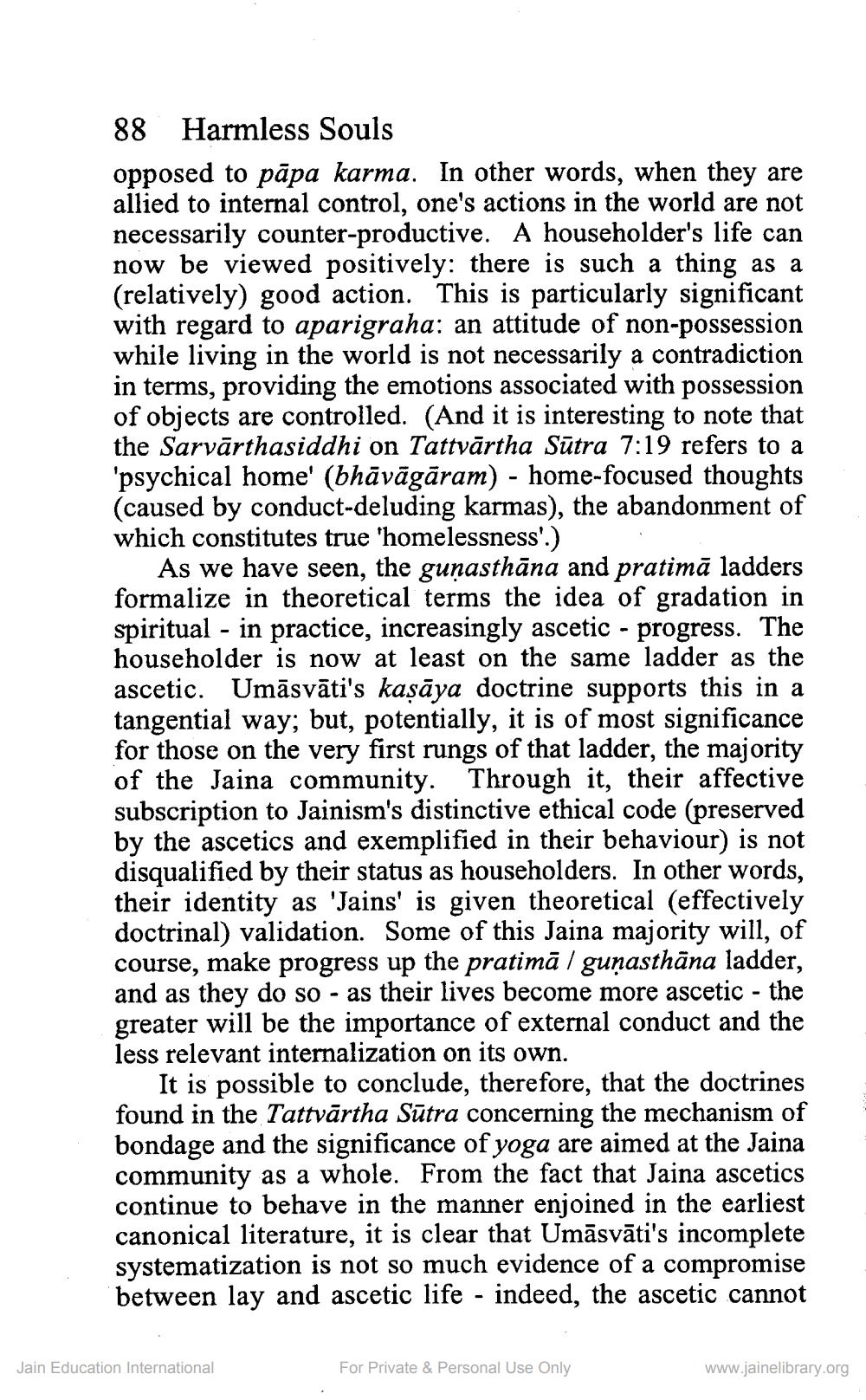________________
88 Harmless Souls opposed to pāpa karma. In other words, when they are allied to internal control, one's actions in the world are not necessarily counter-productive. A householder's life can now be viewed positively: there is such a thing as a (relatively) good action. This is particularly significant with regard to aparigraha: an attitude of non-possession while living in the world is not necessarily a contradiction in terms, providing the emotions associated with possession of objects are controlled. (And it is interesting to note that the Sarvārthasiddhi on Tattvārtha Sūtra 7:19 refers to a 'psychical home' (bhāvāgāram) - home-focused thoughts (caused by conduct-deluding karmas), the abandonment of which constitutes true 'homelessness'.)
As we have seen, the guṇasthāna and pratimā ladders formalize in theoretical terms the idea of gradation in spiritual - in practice, increasingly ascetic - progress. The householder is now at least on the same ladder as the ascetic. Umāsvāti's kasāya doctrine supports this in a tangential way; but, potentially, it is of most significance for those on the very first rungs of that ladder, the majority of the Jaina community. Through it, their affective subscription to Jainism's distinctive ethical code (preserved by the ascetics and exemplified in their behaviour) is not disqualified by their status as householders. In other words, their identity as 'Jains' is given theoretical (effectively doctrinal) validation. Some of this Jaina majority will, of course, make progress up the pratimā / guṇasthāna ladder, and as they do so - as their lives become more ascetic - the greater will be the importance of external conduct and the less relevant internalization on its own.
It is possible to conclude, therefore, that the doctrines found in the Tattvārtha Sūtra concerning the mechanism of bondage and the significance of yoga are aimed at the Jaina community as a whole. From the fact that Jaina ascetics continue to behave in the manner enjoined in the earliest canonical literature, it is clear that Umāsvāti's incomplete systematization is not so much evidence of a compromise between lay and ascetic life - indeed, the ascetic cannot
Jain Education International
For Private & Personal Use Only
www.jainelibrary.org




